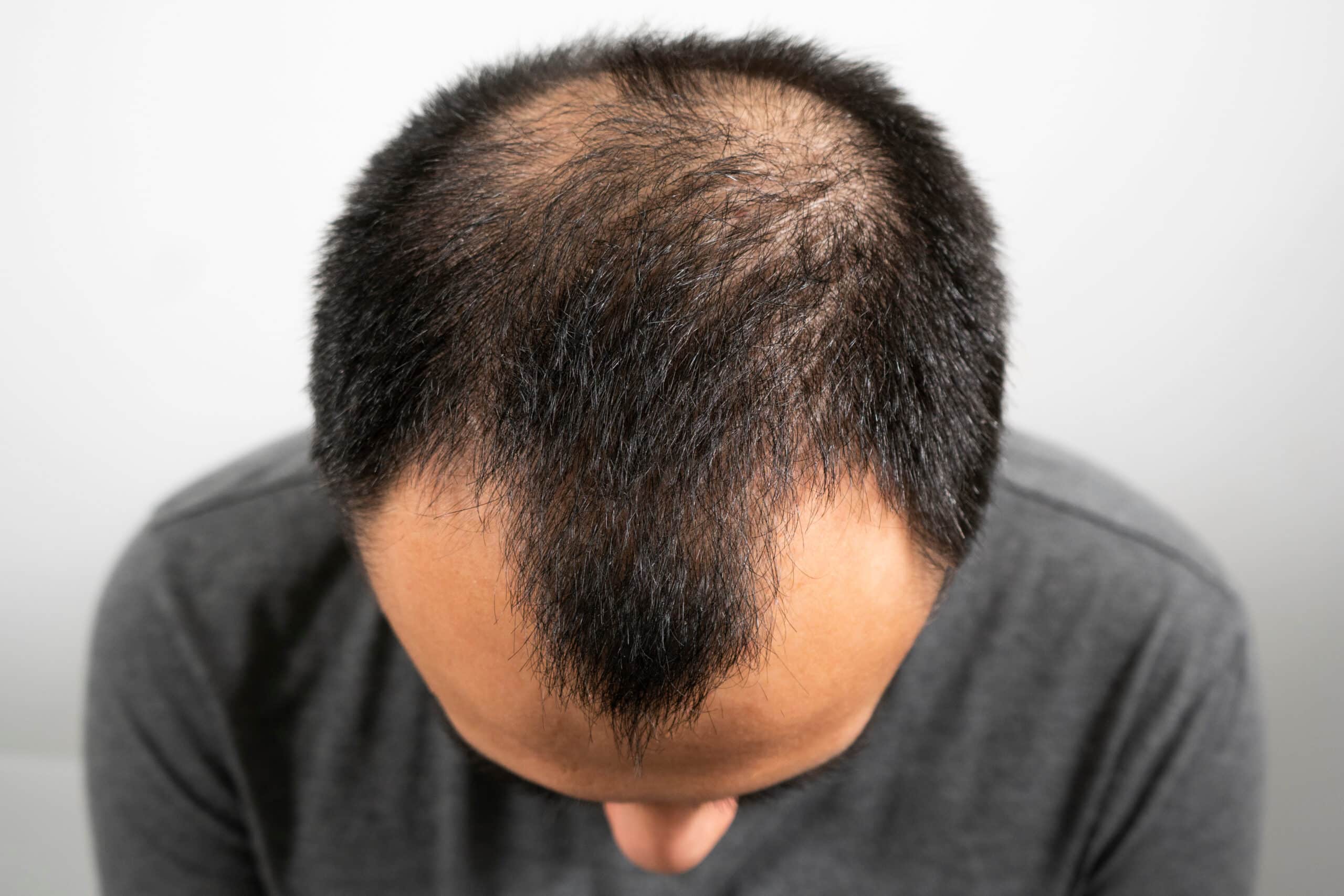
How to Know if Your Hair Loss is Permanent?
- December 12, 2022


In a 2022 survey of hair concerns among people in Singapore, up to 44% of respondents considered hair loss the top concern. If you are experiencing hair loss, an added concern might be whether your hair loss is permanent.
To know whether hair regrowth is possible, you need to understand the nature of your hair loss. This will also help you determine an appropriate course of treatment, such as FUE Hair transplant or oral minoxidil.
Hair loss happens when your hair follicles stop producing new hair, leading to thinning or baldness in specific areas of the scalp. Hair loss is permanent when the hair follicles are damaged or destroyed, preventing new hair growth.
It is not always easy to tell whether the hair loss you’re suffering from is temporary or permanent but there are various signs and conditions to look out for. Ultimately, though, a doctor would be best placed to tell you how bad your hair loss is.
Androgenetic alopecia is the most common form of hair loss. It is usually hereditary and occurs gradually.
In men, androgenetic alopecia is seen as a receding hairline or thinning crown, while in women it is seen as overall hair thinning. If you have androgenetic alopecia, your hair follicles become smaller, producing thinner hair strands. If left untreated, this condition can lead to permanent hair loss.
These are rare autoimmune conditions where your immune system attacks your hair follicles, resulting in complete hair loss. Alopecia totalis presents as complete hair loss on your scalp, while alopecia universalis on your entire body.
As the follicles are damaged, regrowth becomes challenging, leading to permanent baldness in the affected areas. Genetic and environmental factors likely cause both conditions.
Cicatricial alopecia is characterised by inflammation and scarring that destroys your hair follicles. Also known as scarring alopecia, this condition is caused by various factors, including infections, autoimmune diseases and traumatic injuries to the scalp.
As the scar tissue replaces healthy follicles, your hair loss becomes permanent. To minimise further damage, early detection and prompt treatment are crucial.
Traction alopecia is caused by excessive tension or pulling of the hair. This condition often results from tight hairstyles, such as ponytails, braids and extensions, that strain your hair follicles continuously.
With repeated trauma, your hair follicles weaken and can eventually become permanently damaged, leading to irreversible hair loss. You can prevent traction alopecia by avoiding hairstyles that exert excessive force on your hair and allowing your scalp to rest and recover.
If you notice signs of the conditions above, you may be at risk of serious or permanent hair loss. It is important to consult a doctor for a proper diagnosis and for treatment options. Hair loss treatments in Singapore tend to work better when done earlier.
One treatment that can be considered for prolonged hair loss is Follicular Unit Extraction (FUE) hair transplant. This treatment involves the extraction of hair follicles from your donor area, typically the back or sides of your scalp, and their transplantation to the balding areas. This minimally invasive procedure produces natural-looking results and can effectively restore hair density and enhance your appearance.
In addition to FUE hair transplant, hair loss medications, such as oral minoxidil and finasteride, can help slow down the progression of hair loss. Laser therapy and RF microneedling are other non-surgical treatments you can consider. They stimulate hair growth and improve the overall condition of your scalp.
To determine the most suitable treatment for hair loss, you should consult a reputable doctor trained in hair restoration. Your doctor can evaluate your condition and provide personalised recommendations.
Permanent hair loss can be a daunting prospect and most people would want a solution that lasts. A professional hair restoration treatment is probably your best chance at this. SL Aesthetic Clinic provides a range of hair restoration solutions to cater to people with different levels of hair loss.
We have the expertise to diagnose your hair condition and determine which treatment is most suitable for you. If necessary, we’ll recommend combination treatments that often produce the best results. Contact us today.
Like what you read? Share them!